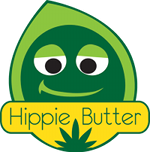Frequently Asked Questions
Q: Is hemp seed and hemp oil legal?
A: Yes, hemp seed and oil is legal in over 35 countries worldwide including Canada, Great Britain, Germany and France to name a few. Hemp seed (non-viable), hemp oil and hemp derivatives can be legally imported, sold or consumed in the USA, where hemp presently remains illegal to grow & cultivate.
Q: Are hemp and marijuana the same thing?
A: Hemp and marijuana are very different varieties from the same plant species cannabis sativa L.The major difference between the two varieties is in the level of THC, the psychoactive ingredient found at levels between 5-20% in marijuana while at trace levels of 0.00030% in hemp (maximum allowable limit).
Q: Will hemp products make the consumer high?
A: NO! Absolutely not. The trace levels of THC present in hemp derivatives do not provide anywhere near the potency (percentage of THC by weight) required to give the consumer a drug high.
Q: What are the chances of failing a drug screening test?
A: Recently, several studies have shown that based on the trace levels of THC present in today's hemp food and body care products, that the chances of being tested and obtaining a "false" positive drug test is very unlikely (just about impossible!).
Q: What do hemp seeds and hemp oil taste like?
A: Wonderful! Hemp seeds, either whole or hulled have a wonderful "nutty" flavor similar to sunflower seeds or pine nuts. Hemp seed oil is "emerald green" in color, with a very light, nutty flavor. See our recipe section for numerous ways to eat and consume hemp seeds and hemp oil.
Q: Are hemp food products healthy for you?
A: Yes! Hemp seeds are one of the world's richest sources of a complete protein (second only to soybean) comprising some 23% of the seed composition, 34% dietary fiber and 31% fat in the form of a nutritious oil that contains both of the essential fatty acids (Omega 6 and 3) in a 3:1 ratio deemed optimum for long term human consumption. In addition, hemp seed oil also contains three other unsaturated fatty acids including the super-polyunsaturated Omega 6 derivative gamma linolenic acid (GLA), stearidonic acid and oleic acid. For complete nutritional information please see our Hemp Nutrition and Composition sections.
Q: Why was hemp originally outlawed in Canada and the USA in the late 1930's?
A: Many people believe this was a conspiracy by a number of major US corporations who stood to lose a lucrative market share of the raw fiber industry for paper and composites. Others feel it was a case of "throwing out the baby with the bath water" referring to both marijuana and hemp as one in the same. Yet, at the same time, an exception was written into US law allowing for the importation of sterilized hemp seeds, oil, fiber and derivative products, which remains the same today even though it is illegal to grow hemp in the USA.




